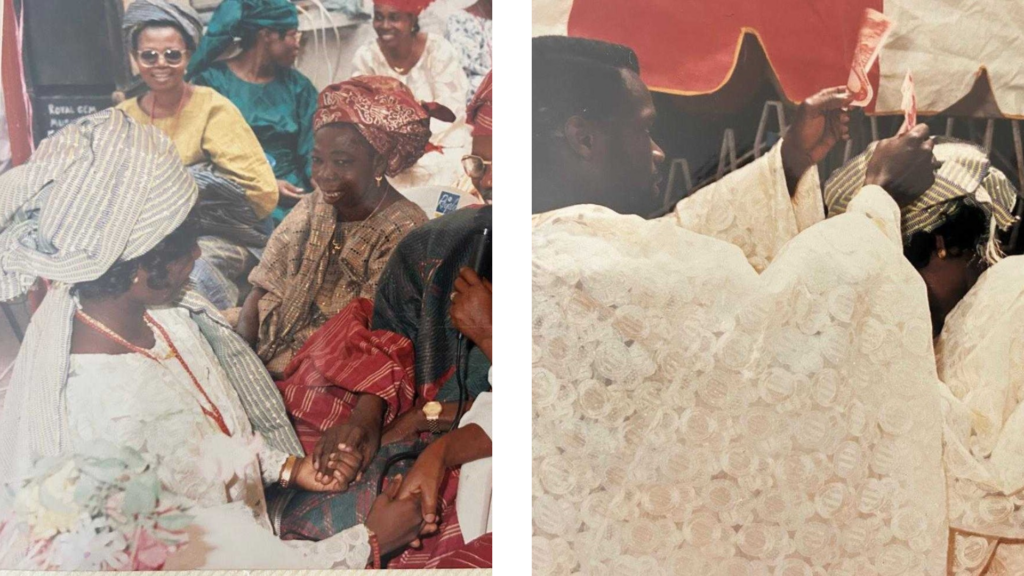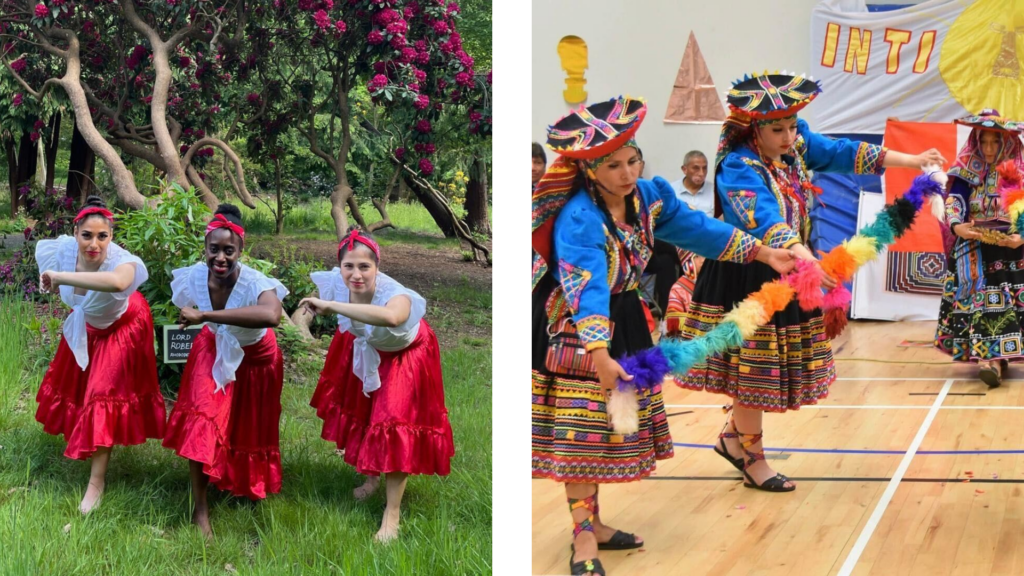How DofE Youth Ambassadors are embracing their cultural heritage
In a world that is increasingly connected, cultural heritage remains a key source of identity and pride for young people. For DofE Youth Ambassadors, Tolu and Katrina, embracing their diverse backgrounds is not just about tradition—it’s about celebrating who they are and sharing their stories with others. From language and family customs to food and festivals, these Youth Ambassadors are proudly keeping their cultural roots alive while inspiring others to do the same.


As someone who grew up in a black household, keeping in touch with my cultural background is important to me. Both my parents grew up in Nigeria, which meant my brother and I experienced both Nigerian and British traditions growing up. Unfortunately, we never learn how to speak Yoruba, but we still try to maintain come cultural practices from my heritage.
Like many Asian cultures, Africans refer to people in the same age range as their parents as their uncles and aunties, whether or not they are related. Similarly, we refer to older people as ‘Mama’ and ‘Baba’, and instead of just greeting them with a hello, we do something called ‘dobale’ (to prostrate) for men or ‘iknule’ (to kneel down) for women. In Yoruba culture, age is seen as proportional to wisdom, meaning that the older a person looks, the wiser they are assumed to be. This means that looking older than you are (above a certain age) is actually a compliment!
For elders in your family, you dobale not just as a greeting but also to have them bless you with your ‘oríkì’, which translates to ‘praise poetry’. Every family has different oríkì which gets passed down and evolves through the generations. The oríkì is like a family boast that speaks of the accomplishments of the family and the blessings that come with them. The oríkì is passed down through the family name, which means that I have never heard the oríkì from my mother’s side.
In Yoruba culture, names are very important. Surnames can be about the job of the family, the deity the family worshipped or a significant achievement that that family, or someone in that family, has done. For example, Ògún is the Yoruba god of iron, so people with ‘Ogun’ in their name mostly likely descended from blacksmiths or metal workers. ‘Balogun’ is the title given to family that was full of warlords. Names can also be seen as quite powerful, so parents would name their child something want to be true for that child or they can be able the circumstances of the child’s birth, for example, ‘Abimbola’ denotes someone who was born into wealth and ‘Kayode’ roughly translates to ‘bringer of joy’.
Learning about my family’s oríkì and the meaning of my names and the history behind my surname have really helped me keep in touch with my family’s culture, despite not always being surrounded by it all the time. I especially love the meaning of my middle name which is ‘my joy in overflowing’ and I constantly strike to be someone embodies this meaning.


I’m half Peruvian and I’m proud of my Latin American heritage. As someone who is from Latin American descent, I express and embrace my culture and traditions through our delicious food, spectacular dances and our array of languages.
To do this, I joined a Peruvian dance group called Baila Peru UK, and an organisation for young British Latinos called Let’s Talk Latin X.
Latin American Heritage Month takes place between September and October, and it’s very important to me as it is a celebration of my culture and community.
The theme this year is ‘Pioneers of Change: Shaping the Future Together’, which recognises the many Latinos who have worked hard for future generations, such as myself.
And with that, I am very grateful to our ancestors for all they have achieved for us.




